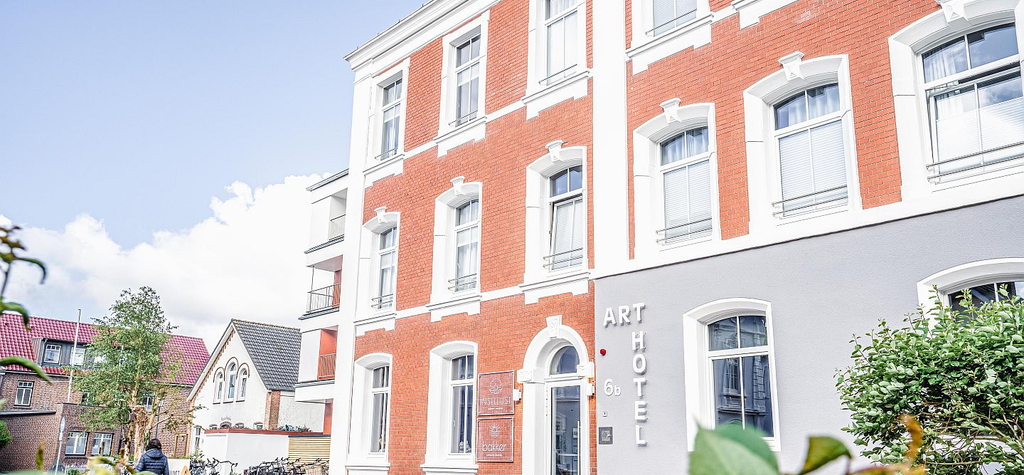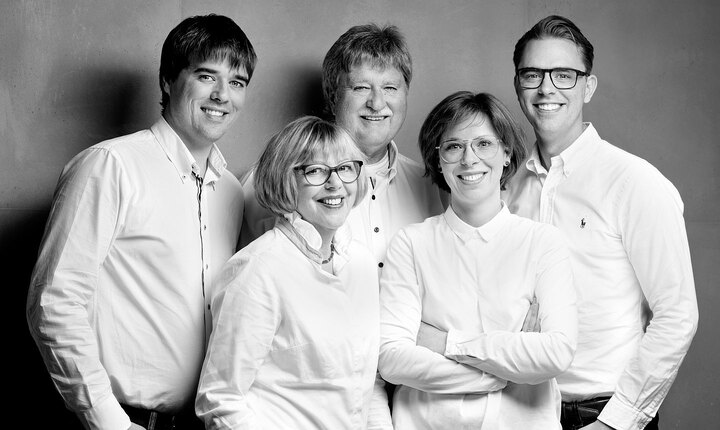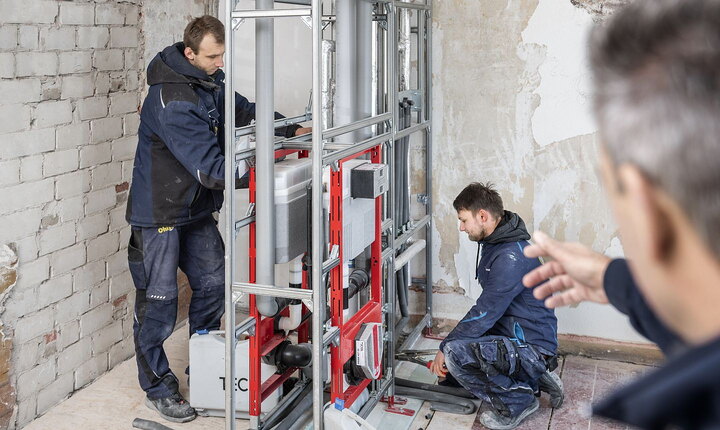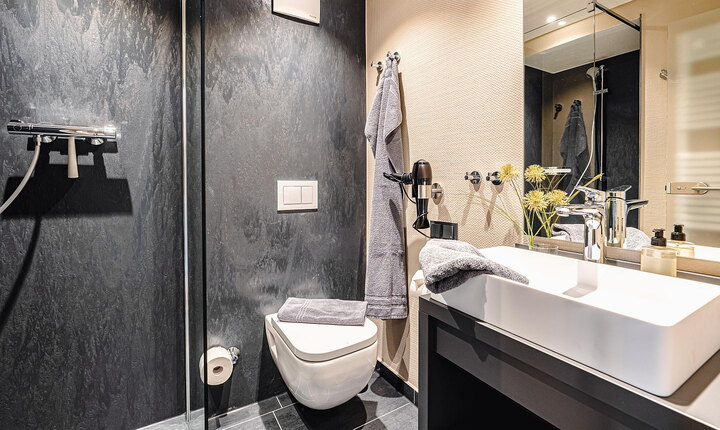
The arthotel bakker
A new face for a traditional ensemble on the North Sea island of Borkum
It's not just an architectural gem. The completely renovated arthotel bakker on the North Sea island of Borkum impresses in other respects as well. The modernization of the ensemble of old and new buildings with 45 rooms was achieved in record time, thanks in part to the use of industrially prefabricated sanitary walls. On Borkum, renovations and refurbishments are only permitted between November 1 and May 31. During the other months, vacationers must not be disturbed by construction noise.
Hotel renovation as a family project
"It's almost a miracle that we actually managed it in just under seven months."

Foto: HOCHDREI
This is how Neele Benken sums up the record-time renovation, which the managing director of the planning and architectural firm HOCHDREI GmbH and HÜPPE + PARTNER is behind with her brother Sören Hüppe. The two run the hotel jointly, having acquired it in November 2021 following a ten-year lease. Their father, Dipl.-Ing. Michael Hüppe, planned and oversaw the renovation as an architect. The siblings also received support from their mother, Gesche Hüppe (interior design) and brother, Jan-Henrik Hüppe (construction management).
Energy self-sufficiency of up to 70 percent
The three-story old building was completely renovated, as was the four-story concrete structure. The latter also received an optimized facade. Typical problem areas were resolved: "First of all, the complex issue of soundproofing," reports Michael Hüppe. "We also invested a great deal of effort in terms of screed, underfloor heating, thermal insulation, and wall construction, and insulated the entire building to such an extent that we are in a completely different class in terms of energy efficiency."
This made it possible to take advantage of KfW funding programs for energy efficiency and renewable energies. The required leap over the 50 percent mark for renewable energies was achieved thanks to photovoltaics on the roof and air-source heat pumps in the basement, as well as the corresponding insulation and smart building technology. "This means we achieve energy self-sufficiency of between 60 and 70 percent per year," says Sören Hüppe.
TECEsystem recommendation
On the recommendation of the local specialist tradesman Ohlsen, the industrially prefabricated sanitary walls from TECEsystem were chosen for the new sanitary technology. Two aspects were decisive: the time savings during assembly and the construction site logistics. "If I build everything myself on site, I need different storage capacity," explains Sören Hüppe. The local facilities would not have allowed for this. This also applies to the use of skilled workers, whose shortage has been a long-standing problem, not only on Borkum. Conventional construction methods would have required "three times as many employees," explains Hüppe.

Foto: Bettina Meckel-Wolf

Foto: heyFreedom
Modular construction is the only option
Daniel Ohlsen, engineer and master plumber, implemented the renovation with his company: "On the mainland, you hire specialists for individual work steps, but on Borkum, that's unaffordable." On the island, in addition to the dependence on the tides, there are also costs for the ferry and overnight stay. Therefore, only industrial prefabrication in modular construction was an option, so that the plumbing installation could be completed in just six months. "TECE relieved me of a lot of the planning work that I would otherwise do myself," says Ohlsen. He sees one advantage of modular construction as being the uncomplicated integration of hygiene flushing stations for cold and hot water on the upper floors, as well as odor extraction for the toilet. Both of these would have required considerable additional installation effort with conventional construction.
High-quality sanitary technology down to the smallest detail
In particular, TECEsystem was used 14 times as room dividers in the renovation of 45 bathrooms: in concrete construction, as walls between two bathrooms, and in an older building, also within a bathroom to separate the shower from the rest of the room. Prefabricated registers were installed in shafts 31 times, and blown-in insulation was used for fire protection on all 45 walls with integrated hygienic cisterns. TECEnow flush plates in glossy white round out the high-quality bathroom fittings.
